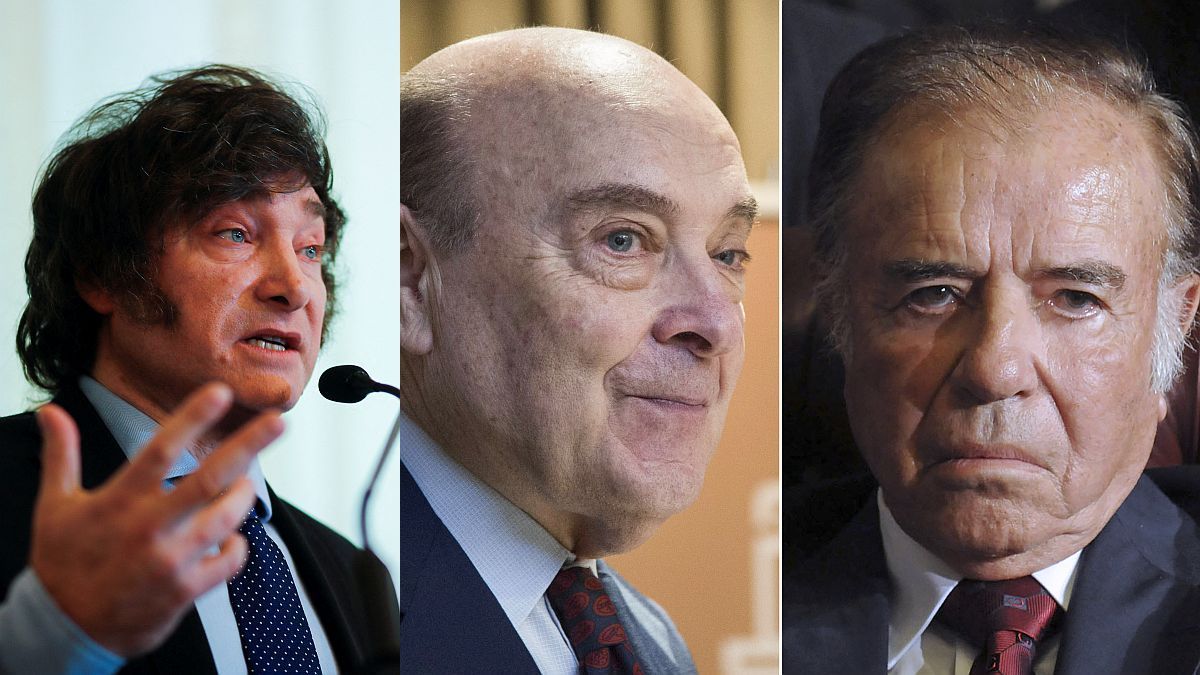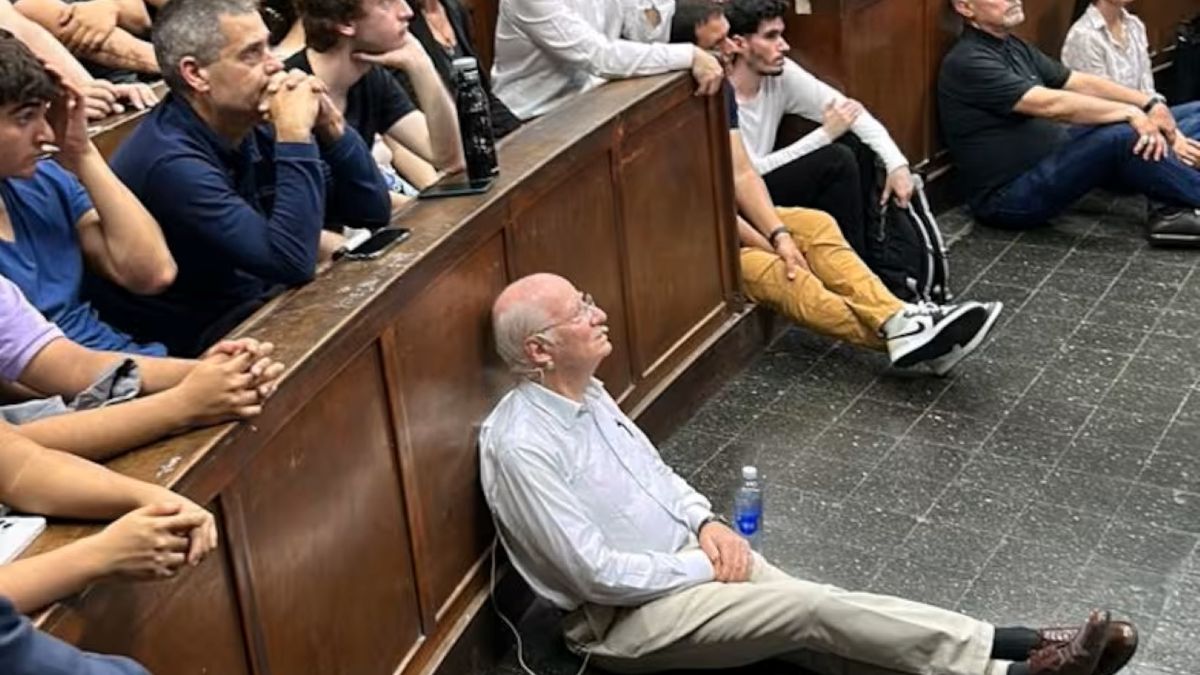After two terrible years for Menem (1989-1990) and the different and invariable ideologues of the beginning: Orlando Ferreres and Roque Fernandez, the tailwind would arrive. In an inflationary country that until 1992 was characterized by the low penetration of credit cards, the unprecedented exchange and monetary stability that was experiencing a phenomenal takeoff of “consumer credit”, generously granted by banks and credit cards .
The core of Carlos Menem’s neoliberal model was the figure of the citizen consumer. The banking entities, in turn, were funded with obligations abroad, at convenient rates, and applied the funds to finance the purchase of durable and semi-durable goods that quickly replaced the “circles of prior savings plans” and other instruments. In short, accompanied by these conditions, for eight years, Carlos Menem had the means available to deploy and consolidate his administration. He could even afford to displace Cavallo, who took credit for the success of stabilizing the inflation rate. (Svampa, Maristella “The exclusive society, Argentina under the sign of neoliberalism.” Buenos Aires: Ediciones Taurus, 2005).
Finally, a substitute would arrive, after two failed attempts. Broda said no first, and Alemann said no later. The offeror was Bauza, Pou’s brother-in-law, who suggested it to Broda. Menem shared it, he said something similar to: “Since Broda said no, and Alemann said no, I called Roque.”
“The truth is that these things don’t worry me much. If they call me a technician, for me being a technician is good. If they call me a theorist, for me being a theorist is good too; Knowing economic theory doesn’t hurt anyone. If worrying about fiscal problems is being a fiscalist, I am a fiscalist, there is no problem. On the other hand, it is not my profession to be a politician. If I wanted to be a politician and I was not a good politician I would be worried, but I have not chosen to be a politician, so that does not worry me either” (Roque Fernández, La Nación 8/18/1996)
He didn’t realize that it was a technopol, nor did he understand that it was ideologized to the maximum. Stiglitz recommended me in 2005, at the Hotel Panamericano: “do not do the doctorate in Economics, that is enough, do the doctorate in Political Science that covers the lack of economists trained in recent decades.” Roque Fernández, liberal ideologue, State employee, more than 10 years of Menem, did not flinch in the slightest when he was exposed, there were not even facial glimpses that revealed his behavior. “[…] If you ask any professional economist what they would have done if they were in our place, and you will see that with more or less variations, everyone would take measures similar to those I have taken” (Roque Fernández, La Nación 8/16/1996) . “Professional economist.” Translated from the jargon “neo-quantitativist macroeconomist”, it means: “our fellow citizens of the ozone hole”. For them, Stiglitz and Krugman (Nobel Prize), Raúl Prebisch, Aldo Ferrer, Marcelo Diamand, are not economists, or if they are mentioned they will say: “they know nothing”…
And yes, Roque Fernández was a politician and militant of the FIP (Popular Left Front, whose ideologist was Jorge Abelardo Ramos-creollo socialism), supporting Perón with his list, a kind of Kirchnerism of that time, which the most intellectual Peronists voted for. Roque Fernández was a man of read speech. He is able to communicate by reading a speech lasting more than an hour and a half at 8 in the morning. We remembered one of those soporific presentations for a small IAEF audience, where I expressed my concern about the number of securities and volume of debt in different currencies, in different countries, with different legislation that were being issued. To which he replied: “that only indicates that the world trusts us.”
INTOLERANCE: MILEI A SYNTHESIS OF MENEM AND CAVALLO
Carlos Menem, presented the pro-market reforms as technical decisions, bordered by scientificity with foreign majesty(Dolina), highly esteemed in that depoliticized society, fed up with inflation and traditional politicians. Guided by his economic cadres, he labeled critics with technical ignorance to delegitimize them. And, he achieved it. Public space was off-limits to those of us who did not come from the “best marketing universities in the world.”
“Here, unfortunately, everyone becomes an economist, but very few know how to do it.” […] and the rest is tenth parsley. […] They keep talking about economics and know absolutely nothing and what is worse, they make forecasts and fail” (Menem, 6/6/1993). Faced with the proposal of the radical legislators to reject the decrees of necessity and urgency that eliminated family allowances, Cavallo responded to them: “[…] There is no magic in the economy if there is a better solution that legislators look for, but it has to be a solution and not an ostrich-style putting your head in the sand” (Diario La Nación 7/18/1996).
Milei treated the economists who signed a letter against dollarization as “failures” and accused them of being “complicit in the politicians’ scam.” (Infobae, Sep 10, 2023 06:56 pm AR)
The economic crisis that had given rise to the Menem presidency had encouraged an exercise of leadership and the pace of reforms had been legitimized by “the need to convince external creditors,” which included international financial organizations, especially the entire IMF (Teichman, 2001, p. 112).
THE CHAINSAW: Rforms of menemism
The government’s willingness to drastically reduce the public deficit (that was, at least, the predominant discourse) and promote “structural reform,” as well as the first privatizations, were marked by this type of pressure, both exogenous and self-imposed. To these ends, a situation that would continue during the early years of the 1990s and that would accelerate and intensify later in political aspects and other types of dialogue, which included greater privatization, “social security reform.” , “labor flexibility” and other reforms at the provincial level
Clipboard.jpg
However, the political economy of the Menemist leadership style changed substantially in 1998. In the context of the Asian crisis, there was a global shift in capital flows to emerging countries, with a decrease from US$225 billion to US$225 billion. 80,000 million in just one year, which simultaneously led to an almost doubling of interest rates, and the beginning of the end, which would be followed by 16 consecutive quarters of recession, which would end in default.
Director of Esperanza Foundation. https://fundacionesperanza.com.ar/ UBA Postgraduate Professor and Master’s Degrees at private universities. Master in International Economic Policy, Doctor in Political Science, author of 6 books
Source: Ambito
David William is a talented author who has made a name for himself in the world of writing. He is a professional author who writes on a wide range of topics, from general interest to opinion news. David is currently working as a writer at 24 hours worlds where he brings his unique perspective and in-depth research to his articles, making them both informative and engaging.




